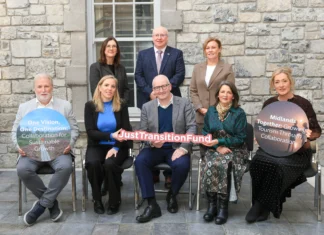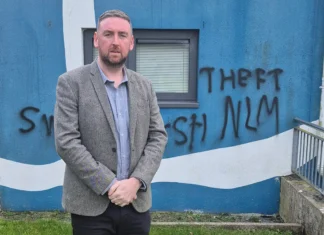The vast majority of home repossessions in Ireland are carried out by ‘household name’ banks a new study from NUIG has revealed, rather than ‘vulture funds’.
Well over half of repossessions which come before the courts from April to December of 2019, were carried out by AIB and its subsidiaries, Bank of Ireland, Ulster Bank, KBC, and Permanent TSB.
Permanent TSB, which is majority owned by the government, is responsible for 20% of repossession cases by itself.
Another 46% of repossessions were pursued by AIB, BoI, Ulster Bank, and KBC.
Vulture funds, non Irish bank entities which hold mortgages, were responsible for one third of court cases.
The research, A Lost Decade – Study on Mortgage Possession Court Lists in Ireland, was carried out by Dr Padraic Kenna, Director of the Centre for Housing Law, Rights and Policy at NUI Galway.
He studied 12,650 mortgage possession cases between April and December 2019, and provides a detailed breakdown of the specific financial institutions behind them, and information about the people at risk .
Dr Kenna warned that Covid-19 could result in a new round of mortgage arrears and that many of the challenges of the last decade could re-emerge.
“It is important not to repeat the mistakes of the past and I would recommended that those facing mortgage payment problems post Covid 19 should be able to avail of the State mediation, personal insolvency and new legislation in 2019 which obliges courts to carry out proportionality assessments.”
His research also found that women are more heavily affected by home repossessions than men, criticising the fact that neither the Central Bank nor any other state agency addresses gender in this issues.
As the majority of single parents are women, Dr Kenna suggests people in that position are more likely to be reliant on state supports, and more heavily impacted by the actions of these financial entities.
“Yet, despite legal obligations on equality, no State agency, including the Central Bank of Ireland, addresses gender in its reports”.
Legal representation is also a thorny issue for people fighting for their home with a large financial institution the report finds.
Only a quarter of individuals in this report had any listed legal representation, while financial institutions had a lawyer in almost all cases.
The research found that just 10 legal firms acting on behalf of financial institutions appeared in 70% of cases.
But despite these very real issues, Dr Kenna found that there has been a steady decline in the number of repossession orders being granted since 2015.
Continuing the pattern over the years, for every two orders granted, three are not granted by the courts, for a variety of reasons.
The full report, A Lost Decade – Study on Mortgage Possession Court Lists in Ireland, is available at https://bit.ly/3dRxmLZ.














